New Chinese ambassador to the US: New possibilities for China-US relations?
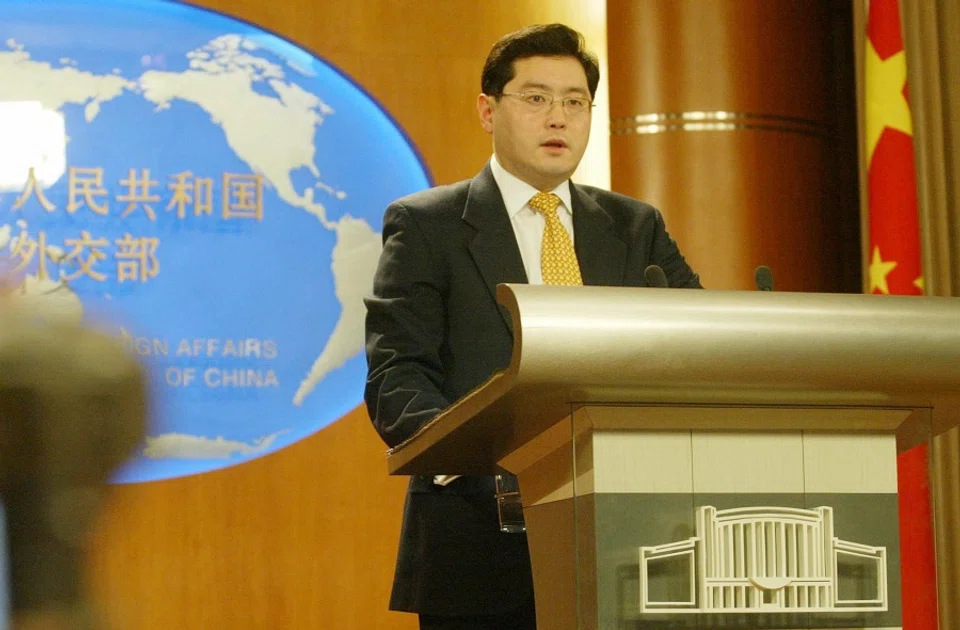
Cui Tiankai, the Chinese ambassador to the US who has seen years of volatile US-China relations, has announced that he will be leaving his post. It is an open secret in diplomatic circles who his successor will be.
In April, quoting officials with knowledge of the matter, The Wall Street Journal reported that both countries were close to naming their new envoys. Vice-Minister Qin Gang of the foreign ministry would be replacing Cui, China's longest-serving ambassador to the US. Meanwhile, the US would be appointing Nicholas Burns, a former US ambassador to NATO and former undersecretary of state for political affairs, as the next US ambassador to China.
While unverified by Chinese and US officials, this piece of news was reposted by state media Global Times and numerous other Chinese internet media outlets, signalling the authorities' tacit confirmation that Qin would be replacing Cui.
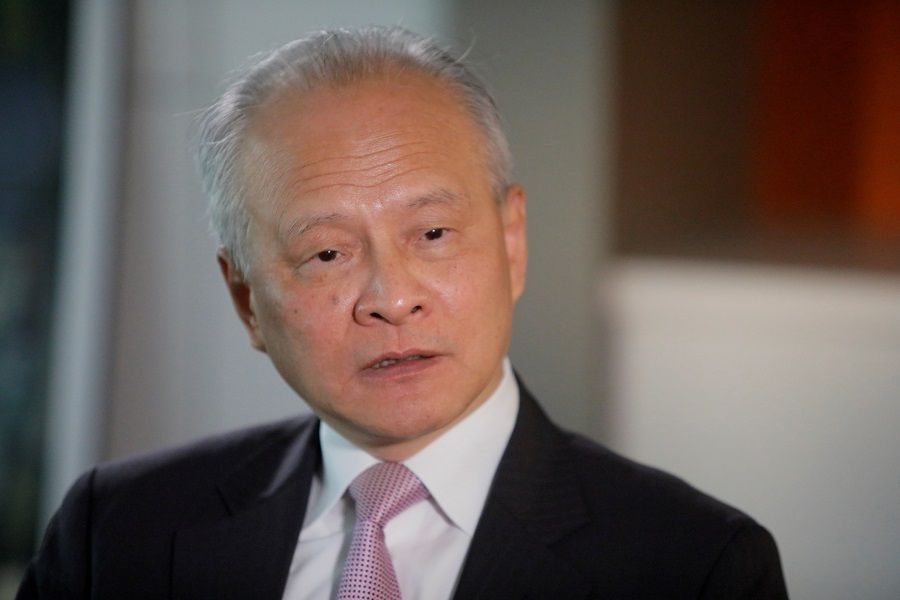
A safe pair of hands
China watchers, especially international media in Beijing, are no stranger to the name Qin Gang. He was China's foreign ministry spokesperson from 2005 to 2010 and again from 2011 to 2014, which makes him the longest-serving foreign ministry spokesperson. He has had a lot of exposure, having dealt with both Chinese and foreign media.
Fifty-five-year-old Qin entered the Chinese foreign ministry after graduating from the University of International Relations in 1988. Since then, he has been in various posts such as the division director of the Department of West European Affairs, the counsellor and later minister of the Chinese embassy in the UK, the deputy director-general then director-general of the Information Department, and the director-general of Protocol Department. He became assistant minister of foreign affairs in 2017 and then the vice-minister in 2018. His areas of responsibility include European regional affairs, information, and protocol.
It is highly likely that China's US policy will be directly controlled by the higher-ups. Thus it is most important for the Chinese ambassador to the US to have the trust of the higher-ups, to have a working style that they approve of and the ability to implement policies decided from above.
The media has long been guessing who the next Chinese ambassador to the US might be. But the sudden emergence of Qin as the most likely candidate comes as a surprise given that he has not been dealing directly with US matters. However, based on the current climate, previous experience dealing with the US is perhaps no longer a necessary prerequisite for becoming China's ambassador to the US.
Analyses have pointed out that the Chinese Communist Party is strengthening its control over the country's foreign affairs, thereby greatly limiting the roles of diplomats. Presently, China-US relations are China's most important yet trickiest foreign relations to handle. It is highly likely that China's US policy will be directly controlled by the higher-ups. Thus it is most important for the Chinese ambassador to the US to have the trust of the higher-ups, to have a working style that they approve of and the ability to implement policies decided from above.
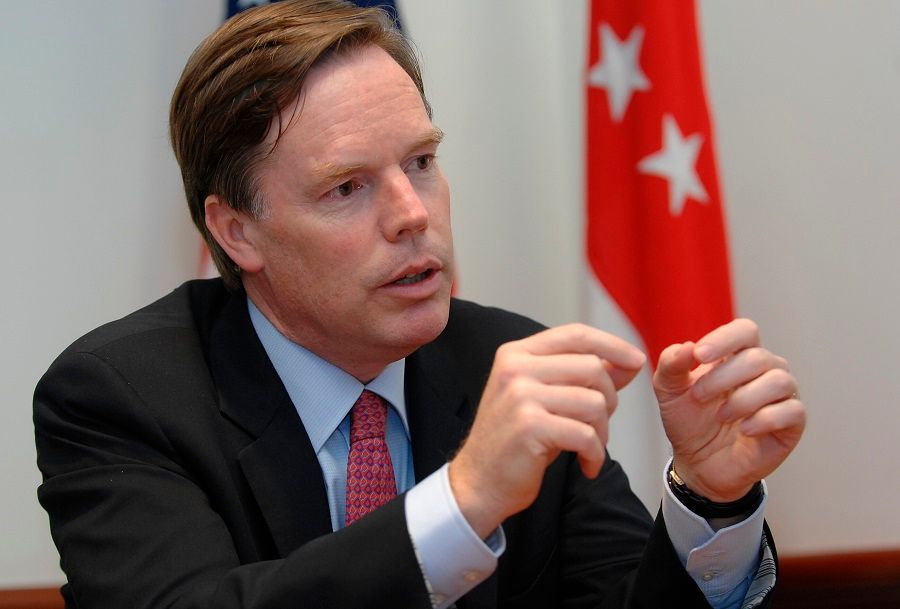
Qin was once dubbed by the media as the "closest person to Xi Jinping" (距习近平最近的人). This was because in his capacity as director-general of the Protocol Department and when he was overseeing protocol work as the vice minister, he was directly responsible for the diplomatic activities of Chinese leaders and worked closely with the higher-ups.
When Chinese President Xi Jinping visited the US in September 2015, the official WeChat account of The Beijing News, xjbzse (政事儿) analysed video footage of the visit, pointing out the "six people who had stayed closest to Xi". Qin was one of them.
In 2016, China held the G20 summit in Hangzhou, and Qin, then director of the Protocol Department, was in charge of the arrangements. Participants recounted to The Wall Street Journal that at one point, Chinese President Xi Jinping turned around and half-jokingly asked Qin if there could be a break in the back-to-back schedule, prompting laughter from those around.
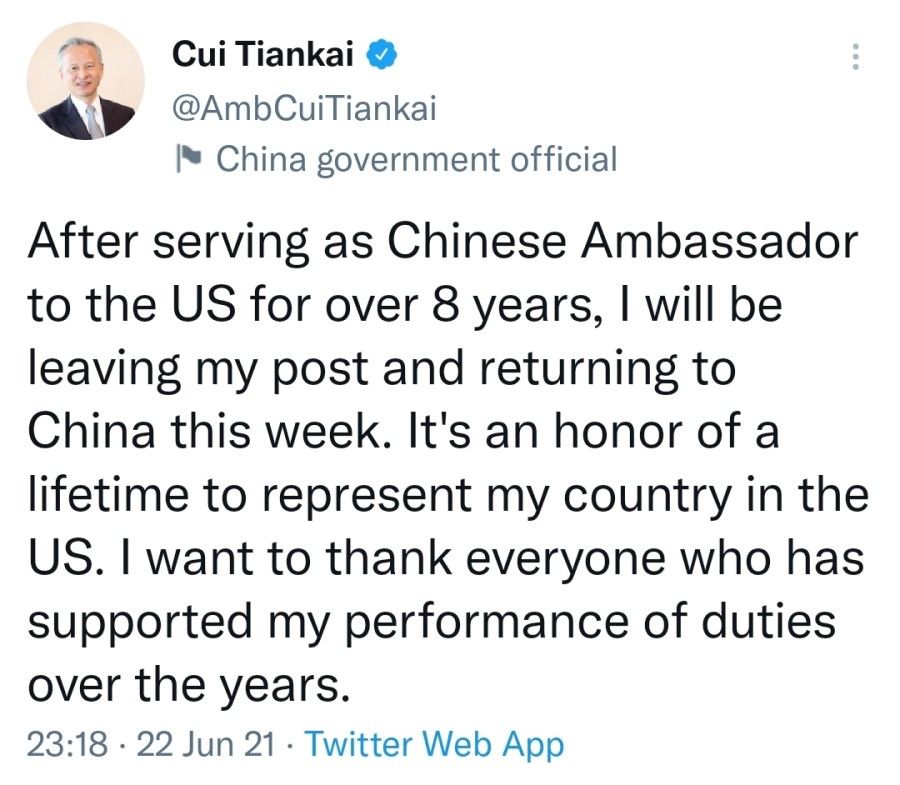
The release of Cui's farewell text signals that Qin may soon be leaving for Washington. Even before the "official announcement", there is already speculation about how Qin will handle China-US relations.
A more assertive approach expected?
A veteran overseas media journalist covering foreign affairs observed in private that Qin's two stints as foreign ministry spokesperson went from him being raw and stilted to smooth and practised. And even though the term "wolf warrior" did not yet exist, Qin was inclined to take a tough stance.
As Chinese media has it, Qin is known for his assertive approach. At a foreign ministry press briefing in February, in response to a question on whether China was engaging in "wolf warrior diplomacy", Qin criticised "baseless smears on China" by "evil wolves" and questioned: "How can you vilify someone for no reason and yet demand them to shut up? Outrageous!"
But for the Chinese ambassador to the US to take an assertive approach - is that a good or bad thing in repairing China-US relations? China-US relations are shifting towards confrontation, and given the crisis-time appointment, one can expect the new ambassador to face a hard battle. He would have to represent Beijing's stance and put forth reasoned arguments for China's interests, while being a bridge between China and the US. He would also have to interact with various groups in the US to maintain amicable dialogue, even as these groups are united as never before in their hard stance towards China. This means that besides being assertive, the new ambassador also needs a lot of patience and wisdom, and possibly a softer approach when appropriate.
But under the gloom, at the very least, having two new faces on the scene leaves room for the imagination that new circumstances can arise.
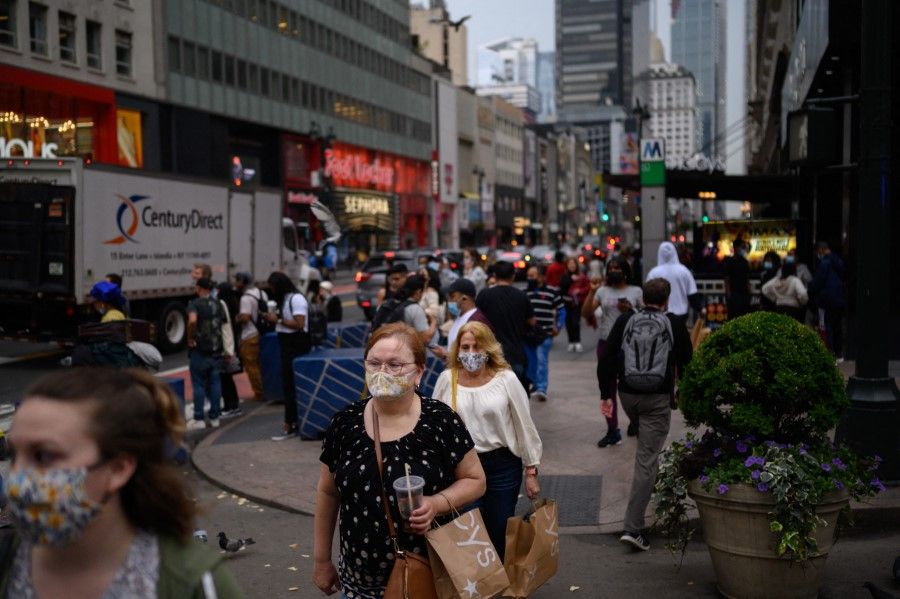
The current conditions in US-China relations are generally adverse but in every crisis lies an opportunity. Some US media are postulating that sending Qin to Washington shows that the Chinese leadership wants a seasoned diplomat to help bring back regular high-level bilateral meetings. On 16 June, White House national security adviser Jake Sullivan said US President Joe Biden is considering holding talks with Xi. As both leaders are expected to attend the G20 summit in Italy in October, that would be an opportunity for such a meeting. And setting up a session for the two leaders is probably the first item for both the incoming US and China ambassadors.
Today, with the intense competition between China and the US, nobody expects the new ambassadors to bring China-US relations back to before 2018. But under the gloom, at the very least, having two new faces on the scene leaves room for the imagination that new circumstances can arise.
